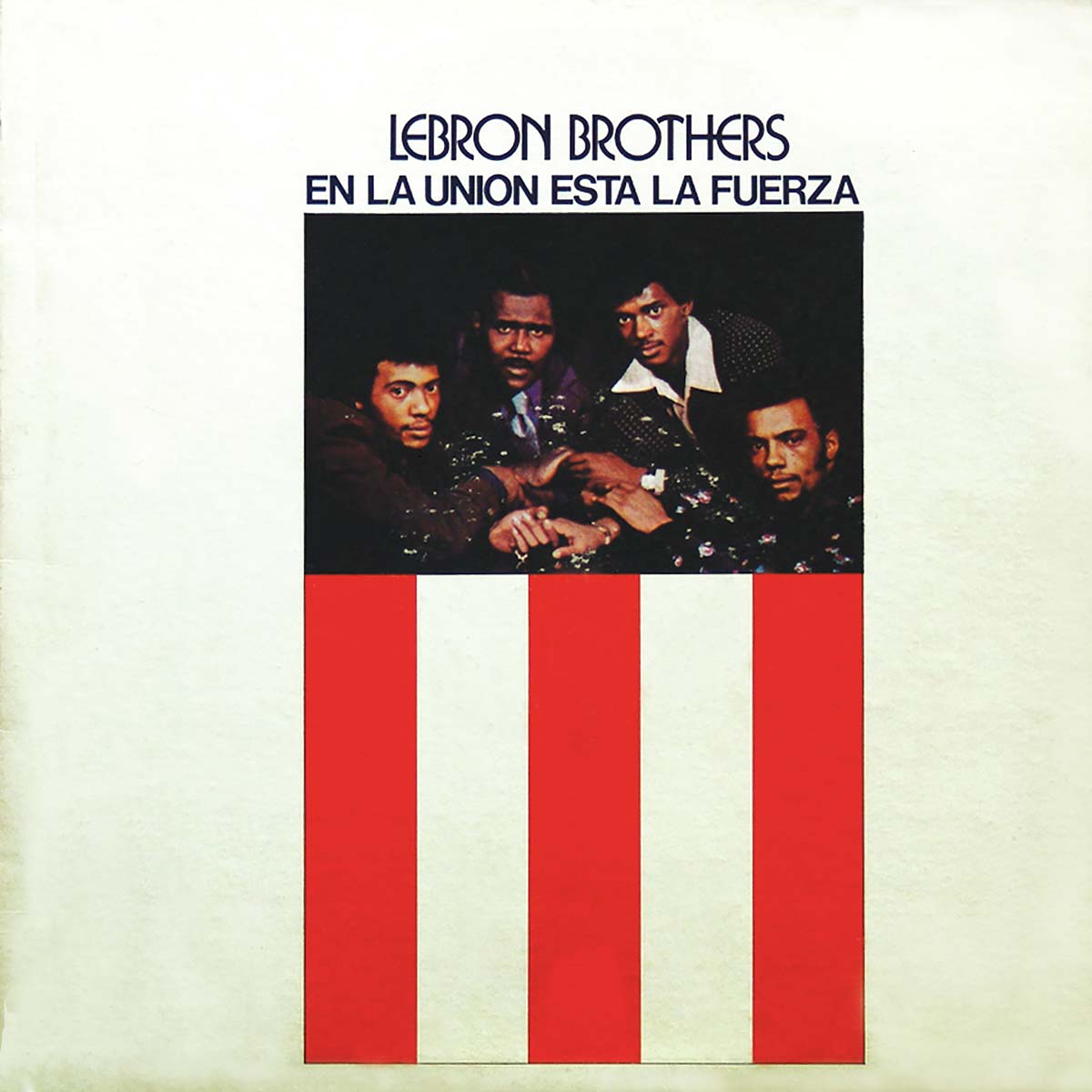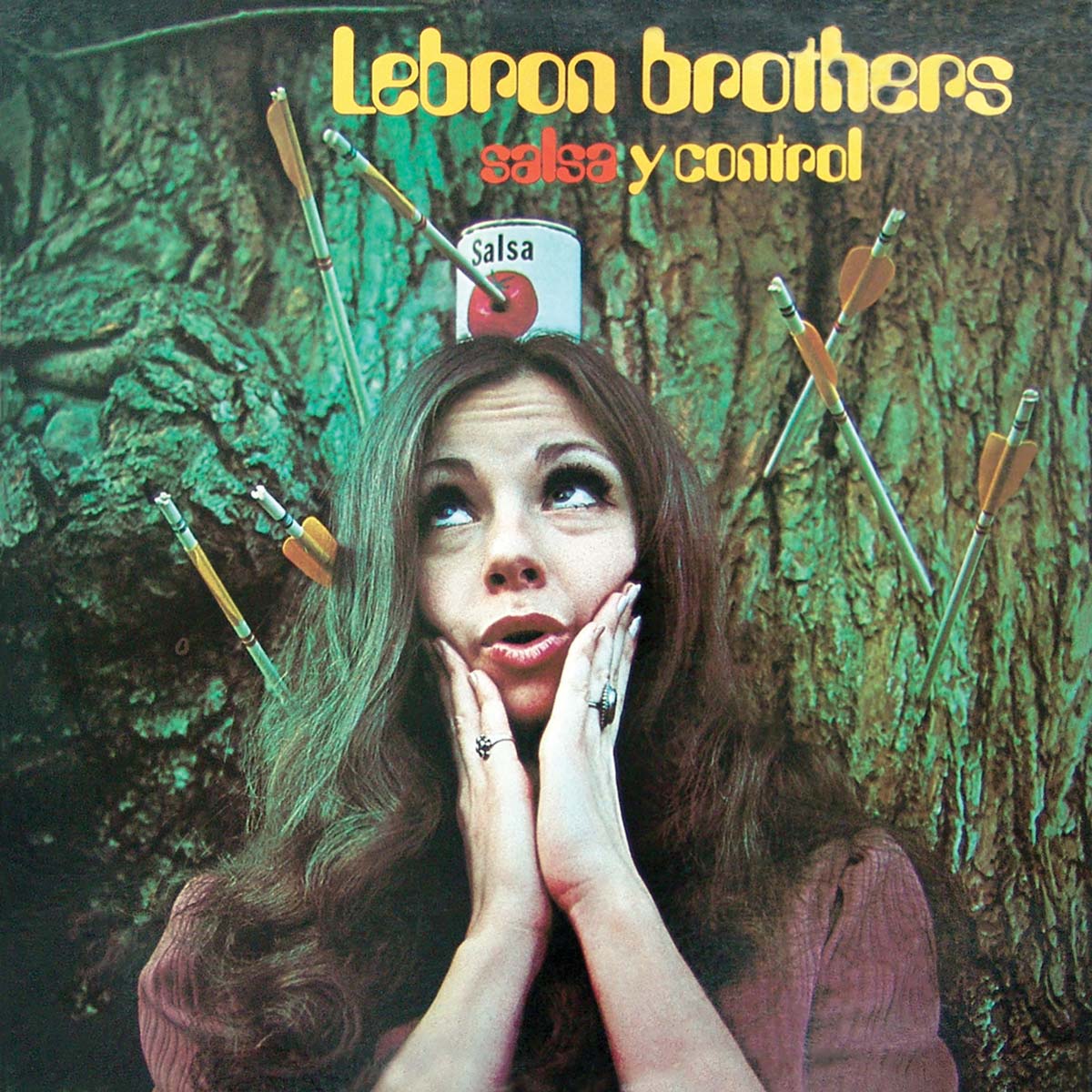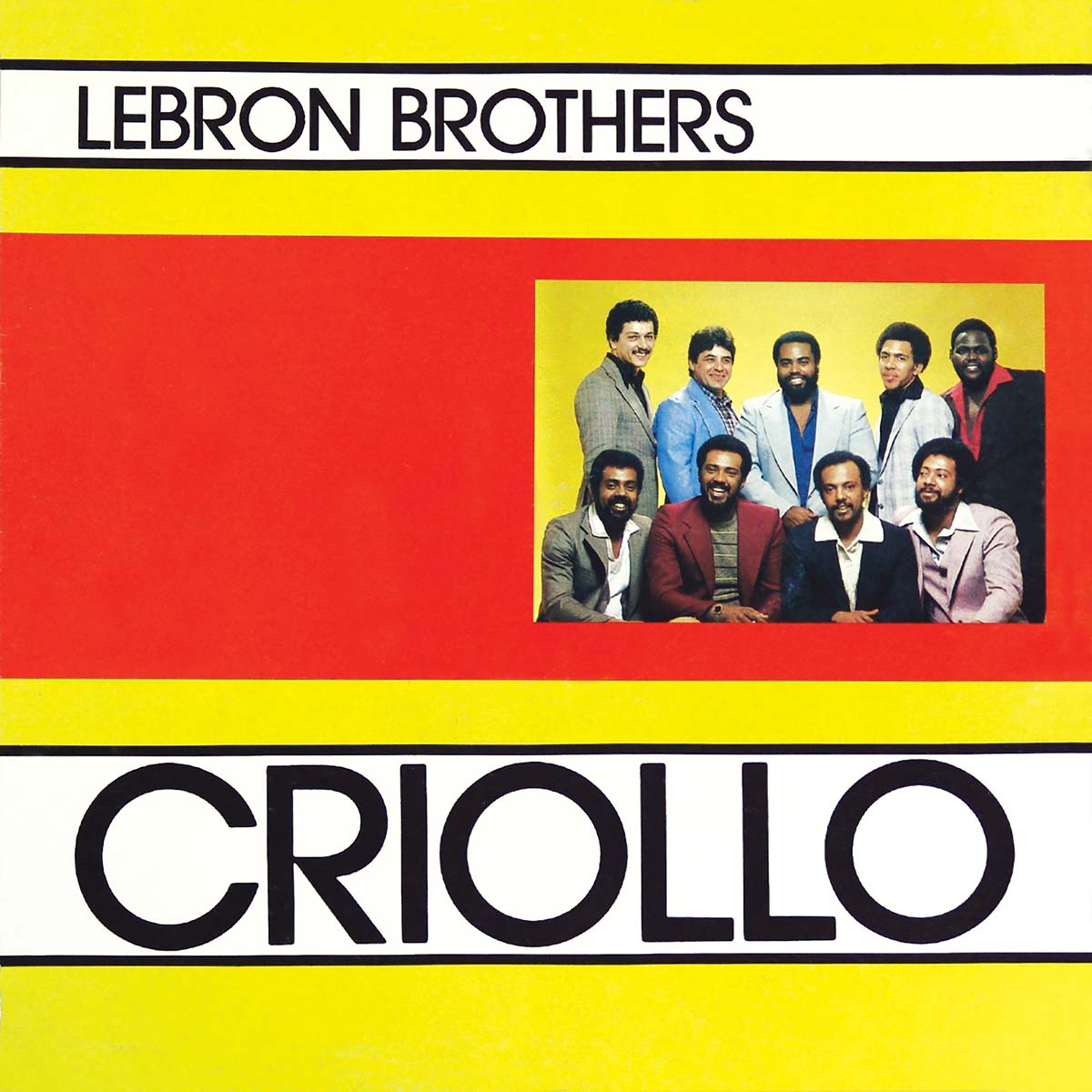
These Afro-Boricua brothers from Brooklyn boogalued their way into the salsa scene, breaking through to the other side with their hit Salsa y Control on their sixth recording for the Cotique label. This, their seventh LP (the third for Fania after they bought out the local label), produced five winners, among them “Dulzura,” “Solamente Tu,” “La Envidia Y La Tumba,” “Como Son Las Cosas,” and “Moros y Cristianos.” The “Lebrón Brothers” make for an interesting chapter in the history of Latin New York music.
A truly talented family, all the compositions here are penned by brother José, who leads, arranges and plays piano. Although their records swung with the dancers and sold for the label, they suffered from lack of respect and recognition from the elder, more established musicians, who were, quite frankly, snobbish about the music and cliquish on the scene. A lot of this had to do with the fact that they started as a boogaloo band, singing English lyrics to a funky back beat son montuno-style. Their brass lines may not have been precisely in pitch back then but they had a raw energy and streetwise swing that could not be stopped.
These boys were also from the ‘hood—black Boricua brothers and proud of it in the same way that James Brown was proud to scream it from the streets. The music industry wanted nice-looking, lighter-skinned singers, and so many doors and venues were closed to the “Lebrón Brothers” The late Jerry Masucci of the original Fania Label approached the “Lebrón Brothers” after he inherited them from the Cotique sale, to offer a replacement for lead singer Pablo with a younger, slimmer, more appealing, white sonero. That, of course, never happened and the Lebrón Brothers were never to share a stage with the Fania All Stars or go on major tours. None of this stopped them from recording and producing hits. “Dulzura” opens with Pablo’s lead voice giving expression to the dance rhythms that get pumped up through the harmonized trumpets, sax and flugelhorn.
A tasty conga solo by brother Frank heightens the mambo. The bolero “Solamente Tu” suggests the melody of the pop American tune, It Had to Be You. A staple of any good working band of the 1970s, boleros gave the dancers a break, the musicians a change of pace and the lovers a chance to gaze at each other. The tune “La Envidia y La Tumba” seems to be taken from the pages of the Latin music cuchifrito scene of the times where envy was ubiquitous and death was right around the corner. An upbeat dance number that takes life as it is, “Como Son Las Cosas” features some nice bass lines by brother Frank with great trumpet work during the mambos. “Juro Que Fue Verdad” starts as a slow son montuno and then suddenly changes into a bomba beat that sounds as though it’s thrown on top of the Cuban rhythms. The feeling is more of a jolt than a smooth transition. It quickly then reverts back to the son montuno, this time featuring a coro reminiscent of that signature Johnny Pacheco nasal (fañoso) effect.
“Moros y Cristianos” is a call to blacks and whites to wake up and stop the racial fighting. It is considered a true dance number used to rouse the spirit as well as to move the feet. Another tune about hypocrisy, “De Noche Eres Infiel” features some soaring horn lines inside this son montuno, while “Si El Destino Asi Lo Quiere” closes out this recording waxing philosophically, If Destiny Wants It For Me, That’s What It’ll Be. And that’s what it was for the “Lebrón Brothers”.
Credits: Jose Lebrón – Piano, Leader Angel Lebrón – Bass Carlos Lebrón – Bongo-Bell Frank Lebrón – Conga Tito Ocasio – Timbales Gabe Gill – Saxophone Ray Feliciano – Trumpet Danny Reyes – Trumpet Roy Román – Trumpet, Flugelhorn Producer – Ralph Lew Recorded at – Good Vibrations Sound Studios Engineer – Bernie Fox Arrangements – José Lebrón Original Album Photography – Leon Gast Original Album Design – “WE-2” Graphic Designs Inc. Original Album Art Director – Izzy Sanabria Original Album Designer – Walter Velez
Written by Aurora Flores




